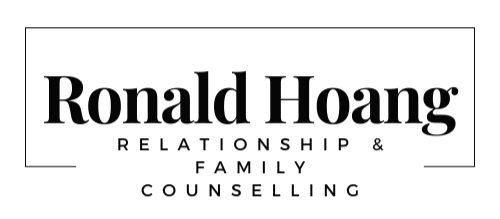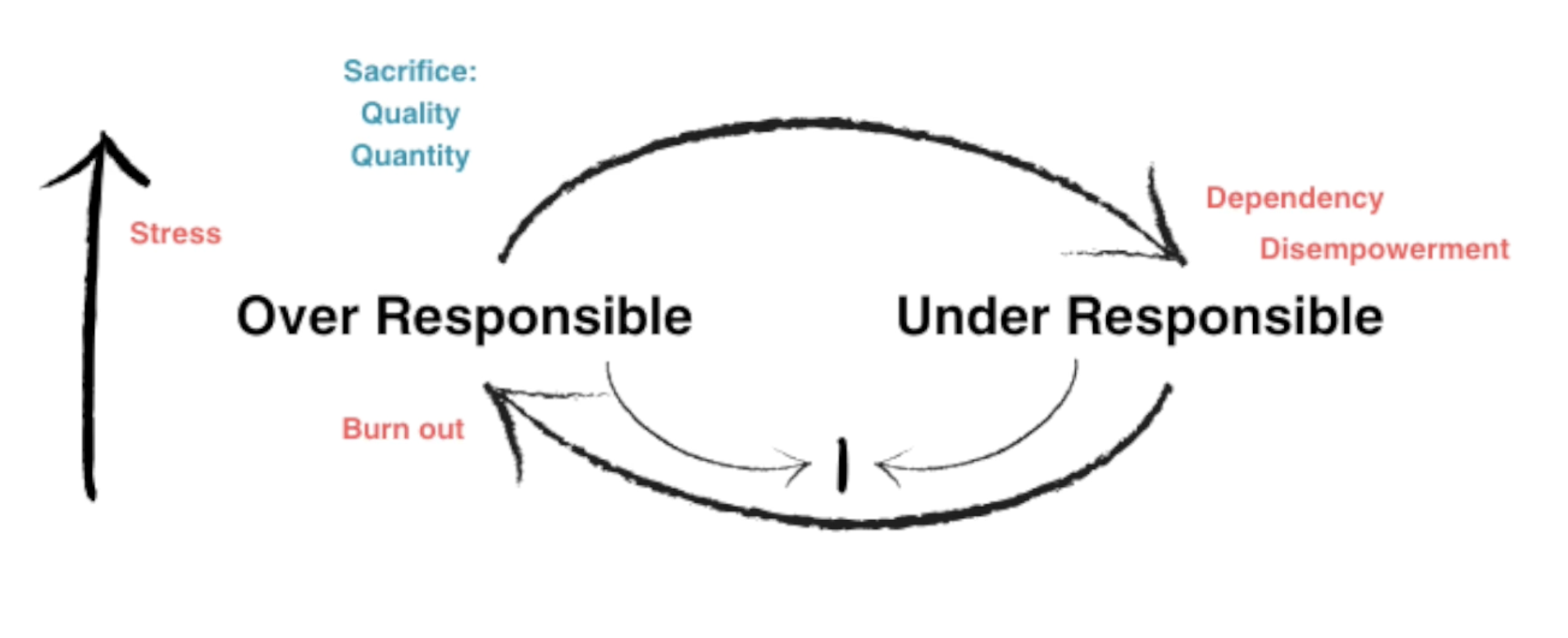Feeling responsible for EVERYTHING in the house
Overworked. Burnt out. The responsibility of the household falls on your shoulders. If you don’t do it, nobody will.
Meanwhile you’re partnered with lazy, leaving everything for you to do, nothing is done for anyone else except themselves.
You just wish you had some time for yourself.
It’s a common dynamic in many relationships, not just intimate ones. One person is over responsible for the other, and because of this over responsibility, the other is enabled into being under responsible.
This is how it looks: one person is over responsible, the other, under responsible.
What happens is the over responsible feels overworked which eventually leads to burn out. You know you’re burnt out when small things start to trigger big responses. But because of the over responsibility, over time, the under responsible becomes dependent and disempowered.
The under responsible becomes reliant on the over responsible in order to complete tasks and in some situations can result in feelings of incompetence and lack of confidence because they never got any experience in solving problems for themselves. This can lead to a vicious cycle as the under responsible becomes more under responsible, and the over responsible is then needing to be even more responsible.
So, how can we break this vicious cycle? How can we change this dance?
The over responsible needs to step down to be less responsible, and the under responsible needs to step up to be more responsible. It takes two to tango. Ideally two people need to co-operate in order to resolve this cycle.
If the under responsible fails to step up when the over responsible steps down, the over responsible’s stress will shoot through the roof, conflict ensues and the cycle continues, getting more vicious over time.
In the step down of responsibility, the over responsible will need to sacrifice quality or quantity. This involves some level of acceptance, compromise and tolerance.
The motto of the over responsible is “if you want it done right, do it yourself”. But we know this eventually leads to burn out. So, the over responsible needs a system to evaluate and prioritise responsibilities and figure out when and where they are able to step down.
They need to determine what responsibilities are important versus not so important, and whether it’s urgent or not urgent.
If it’s something really important and urgent, you may not want to just wait around for it to be done because that will lead to stress and anxiety. Meanwhile, if it’s not important and not urgent, but you’re running around trying to get everything done because if you don’t do it nobody will, this will equally lead to stress and anxiety. So, evaluating what responsibilities can be relinquished based off importance and urgency. This evaluation of tasks is equally important for the under responsible to learn too, but in an opposing way.
Often the over responsible is over responsible because it’s their way of resolving their own sense of anxiety, but furthermore, being responsible often provides them with a sense of meaning - being able to contribute and care for others provides a sense of self-worth.
But if you give a man a fish, you feed him for a day. If you teach a man to fish, you feed him for a lifetime. By being over responsible, you may be taking away the other persons chance at self worth, taking away from their growth and their opportunity to contribute in the relationship or to developing their own self.
As the over responsible takes a step down from responsibilities, those responsibilities transform, instead they become responsible for boundaries - to say “no” and for having the other be responsible for themself.
Because being over responsible is often tied to self-worth, the over responsible often think “aren’t I just being selfish by not doing all that I can for my loved ones?”. Not when it means sacrificing one’s own wellbeing and hence sacrificing the relationship – this is a sinking ship. Self-care is not selfish, it’s self-worth. And you can’t save a drowning person when you yourself are drowning, you need to save yourself first.
Some responsibilities may realistically not be able to be relinquished. A protective factor for burn out is knowing one’s impact. And in relationship, this means gratitude. Sharing how, as the under responsible, the actions of your partner have contributed to your life, your wellbeing, your needs, and the pleasureful feelings in being fulfilled in such a way.
This dance doesn’t just happen in the division of labor, it occurs in rescuing or attempting to fix another person’s life problem. And as we now know, being over responsible doesn’t help resolve the issue.
But when you change music, you change dance.



